As Tamils across the island gear up to vote in Sri Lanka’s parliamentary elections this week, candidates from across the array of Tamil parties have all tried to showcase their nationalist credentials to secure the Tamil vote.
The election, set to take place on November 14, has seen a surge in Tamil nominations as hundreds of individuals, some from newly formed Tamil political parties, are standing to become MPs.
There are almost 400 candidates standing for Jaffna’s 6 seats, whilst in the Vanni, there are 423 candidates for their 6 seats. Hundreds of Tamils are also standing in the Eastern Provinces three districts of Batticaloa, Amparai and Trincomalee.
As they compete for the Tamil vote however, all have been burnishing their Tamil nationalist stances. Several have visited the Mullivaikkal memorial, the site of the 2009 genocide, whilst others have paid homage to LTTE fighters at the now-destroyed cemeteries dotted across the North-East.
Hundreds of statements and press meetings have taken place in recent weeks. See a collection of such remarks from various politicians vying for the Tamil vote, below.
_____
Former MP and leader of the Tamil Eelam Liberation Organization (TELO) Selvam Adaikalanathan - DTNA (11/11/24). In a press release he says that freeing political prisoners is within the remit of the Sri Lankan president. "The President also has the power to release prisoners on the basis of an amnesty. But like the past presidents, he is giving soundbites for politics without doing anything for the Tamils... If the President so wishes, he can still release political prisoners. There is no need to release only after this election. So it is clear that he is staging a political drama to gain the votes of the Tamil people on the matter of political prisoners."
Adaikalanathan - DTNA (09/11/24), beginning his campaign in Vavuniya. "Vote for the liberation of our people!" he said. His campaign began in Vairavapuliyankulam and went on to various parts of Vanuniya town. "This government is gradually revealing its true identity. First they said they cannot accept the UN resolution, then they said they will not implement the 13th amendment, today they are speaking against devolution. They have a position of practicing Sinhalese nationalism by calling themselves a leftist party. Our people have overcome many losses, so I request people to unite and vote for the conch symbol for the liberation of our race".
Sivasakthy Anandan - DTNA (11/11/24), speaking to reporters in Vavuniya. "Among the parties in the electoral arena today, the Democratic Tamil National Alliance is the strongest party and alliance. In the past we travelled as the Tamil National Alliance but that has now become destabilized and fragmented. We have a chronic issue. Our people are constantly fighting for the right to self-determination. So the government should take a practical step to solve this problem."
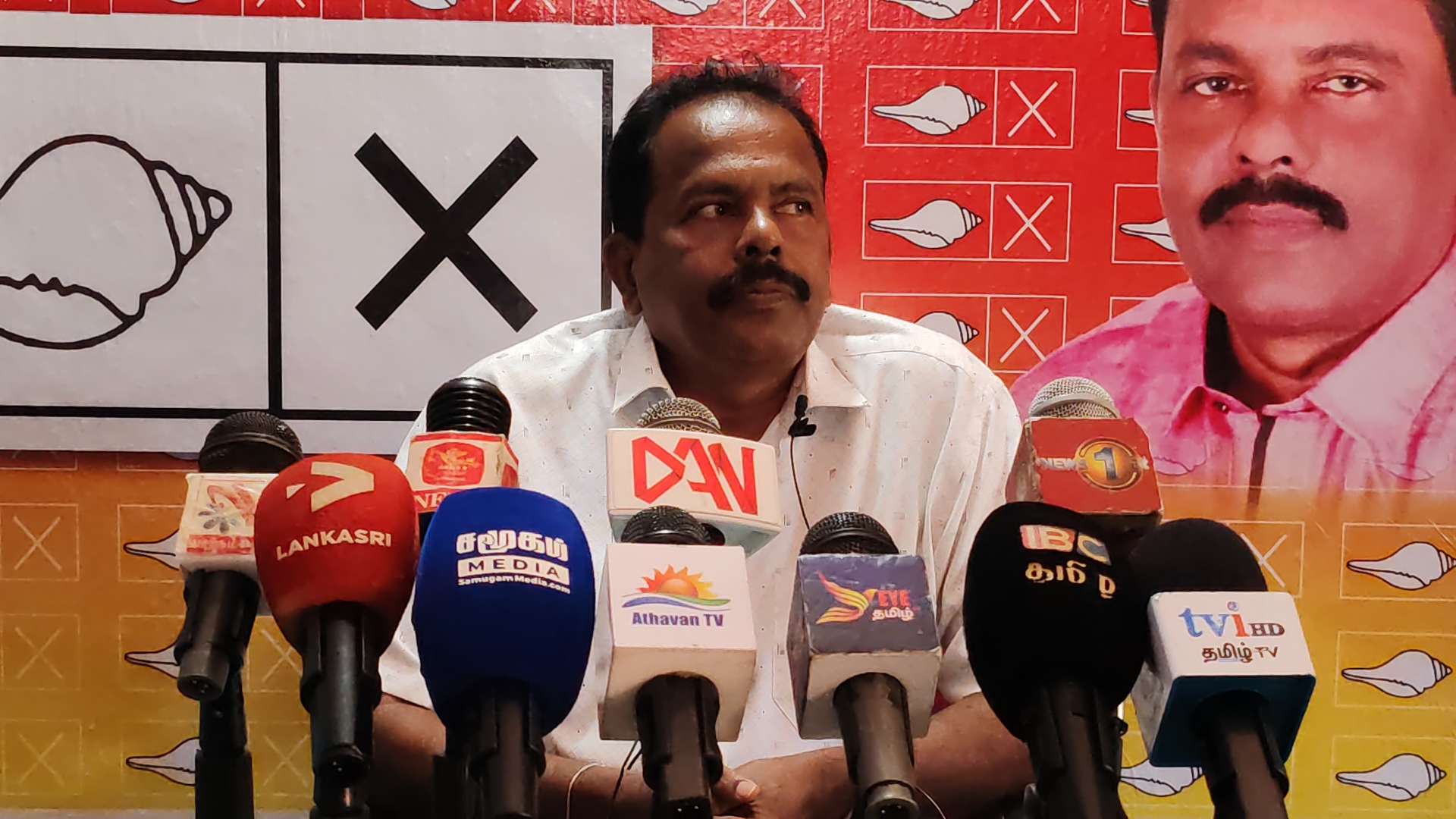 Democratic Tamil National Allaince candidate and former MP Sivasakthy Anandan speaking to reporters in Vavuniya
Democratic Tamil National Allaince candidate and former MP Sivasakthy Anandan speaking to reporters in Vavuniya
Divisional Civil Networks, Eastern Province, Sri Lanka (08/11/24), statement.
"The struggle for the rights and dignity of Tamil-speaking people in the North East of Sri Lanka is a complex and deeply rooted issue that has persisted for decades. Civil organizations, both within Sri Lanka and internationally for more than fifty years, have been advocating for a sustainable political solution to address the longstanding grievances of the Tamil - speaking communities in the Northern and Eastern provinces.
A lasting political solution is crucial for the Tamil-speaking people of Sri Lanka. For too long, they have faced systemic discrimination, marginalization, and violence, especially during and after the civil war. The need for a political solution that respects Tamil identity, rights, and aspirations is central to achieving peace, justice, and equality.
As such, we strongly insist on an irreversible federal solution as a permanent political settlement to ensure the right of self-determination of the people of the North East. Civil organizations and all parties are continuously advocating for a lasting political solution to the long-standing ethnic conflict and so on.
Therefore, with the upcoming general election to elect members of parliament on November 14, 2024, the Tamil-speaking people living in the North-Eastern regions should assert their presence and insist on a political solution to the 76-year-old national ethnic problem. We are in a position to support parties in the North-East who can continue to present a lasting political solution to Sri Lanka both nationally and internationally.
Dear Tamil speaking people!
As we have been systematically divided by the Sinhalese chauvinist government for ages, our Tamil speaking parties are contesting separately in this election. However, as this general election is an important election to push for a lasting political solution and elect representatives to sustain our existence, we demand that the candidates of the Tamil parties who are insisting on the above-mentioned solution should be voted for without prejudice."
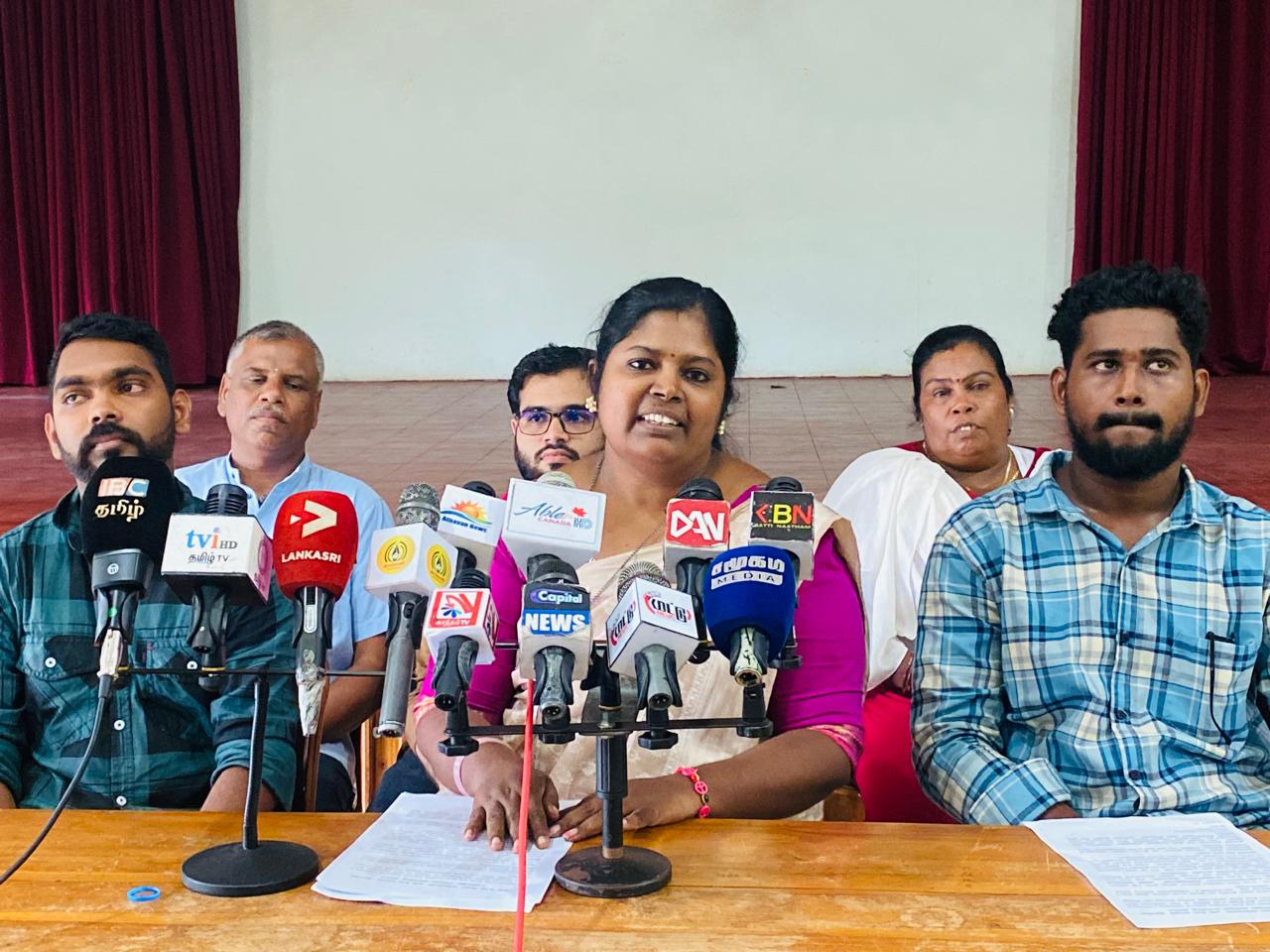
A press conference by the Divisional Civil Networks in the Eastern Province was held last week
N Pratheepan - People's Struggle Alliance (3/11/24). "We fought against Buddhist chauvinism! Send us to Parliament! Until now, we have been continuously participating in people's protests against Sinhala-Buddhist chauvinism. We, who were on the streets for the oppressed people, should be appointed as an opposition party in the Parliament".
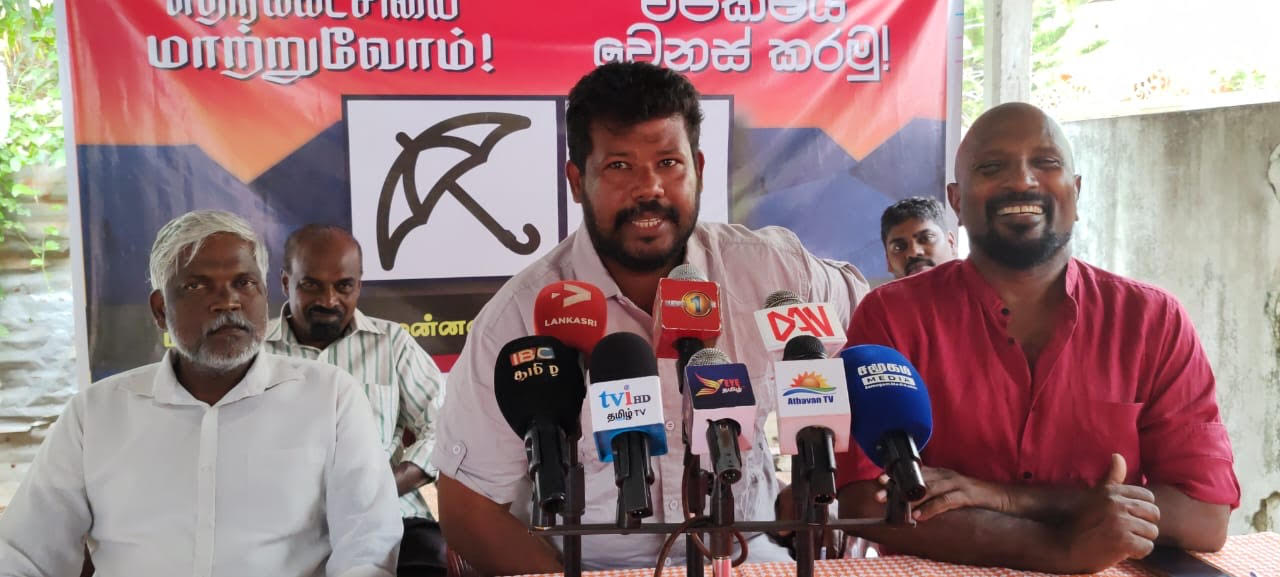
N Pratheepan of People's Struggle Alliance, speakng at a press conference in Vavuniya.
Sasikala Raviraj DTNA (02/11/24), speaking to reporters at Jaffna Press Club. "Tamil people should also reject parties and independent groups that ignore Tamil nationalism. I have joined the alliance of three parties in the Tamil National Alliance that was formed by the Tamil National Leader. My husband was also assassinated while he was in the Tamil National Alliance. I will fulfill you wish and I will fulfill my husband's wish".
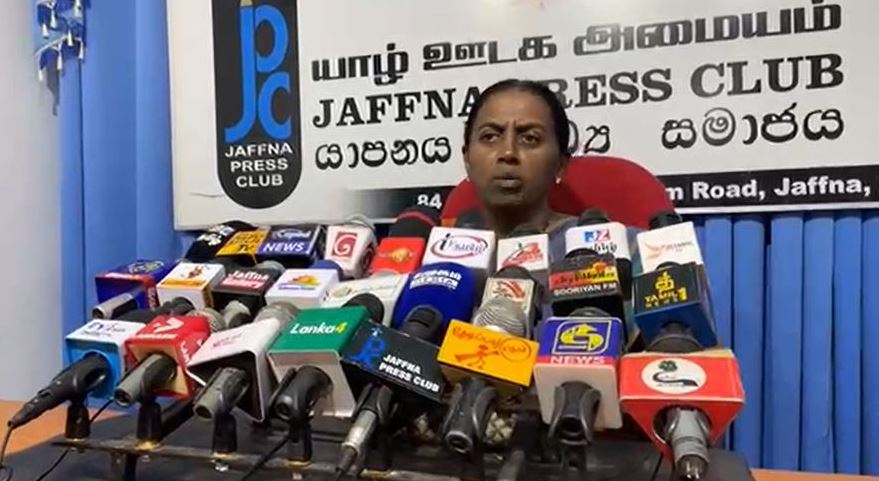
Mrs Sasikala Raviraj representing the Democratic Tamil National Allaince speaking at the Jaffna Press Club
Muniyasamy Nagaruban - EROS Democatic Front (05/11/24) speaking to reporters in Mannar. "My late father is a was hero of the EROS Democratic Front. I am going to bring forward some things politically which he could not do through armed struggle. That is why I am contesting this election."
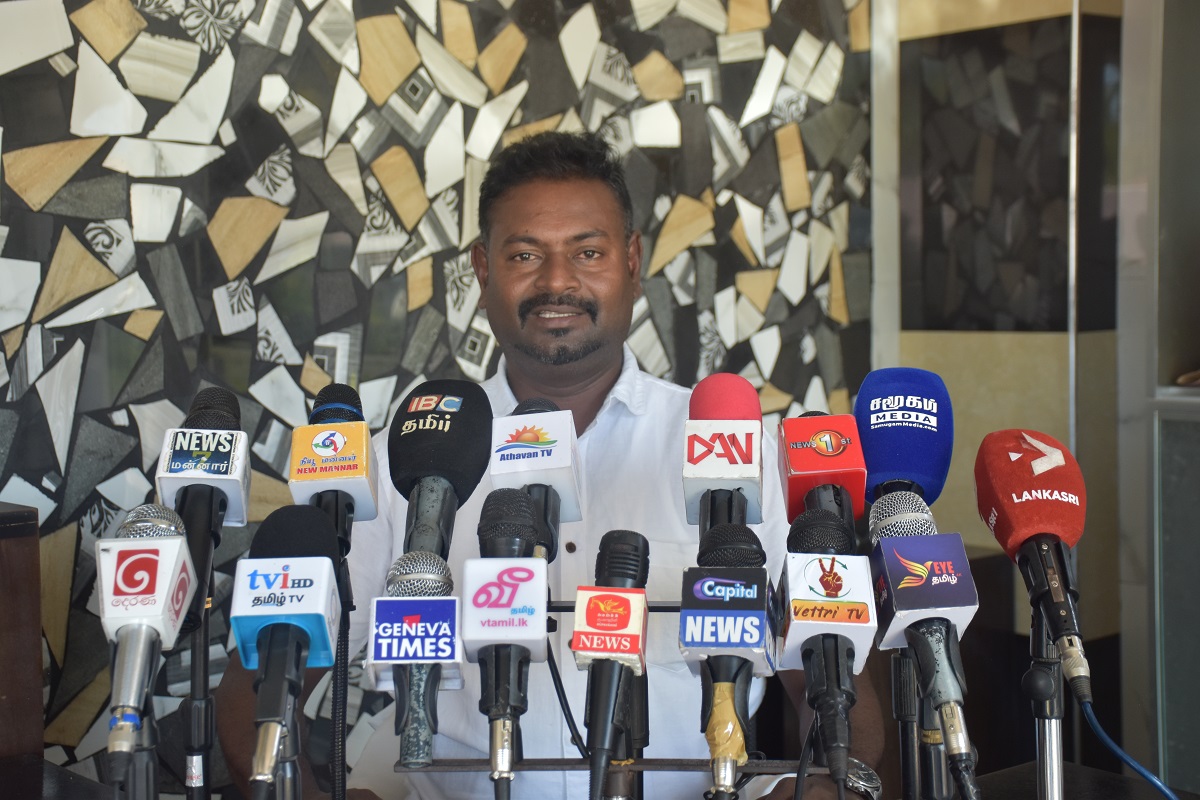
Munusamy Nagaruban of EROS Democratic Front speaking in Mannar earlier this month.
Former District Minister Dr Sathyalingam - ITAK (06/11/24), in a press release. "Our party is always ready to negotiate with the government with an open mind to resolve the political aspirations of the Tamil people. If there is a change in the attitude of the new government, it will be easier to solve the political problems of the Tamil people. However, what is their real position should be seen. They are expressing different views during the election period. However, until a political solution is found, the basic problems of the affected people cannot be ignored."
Dr Sathiyalingam - ITAK (11/11/24), press conference in Vavuniya. “The oppression we face—through land grabs, efforts to alter our ethnic heritage and economic struggles—will only continue unless we make our voting choices based on ethnicity... I stand ready to represent our people in Parliament. This election is not just about votes; it’s about ensuring Tamil voices are present, powerful, and united. We must avoid candidates with false agendas and choose honest representatives.”

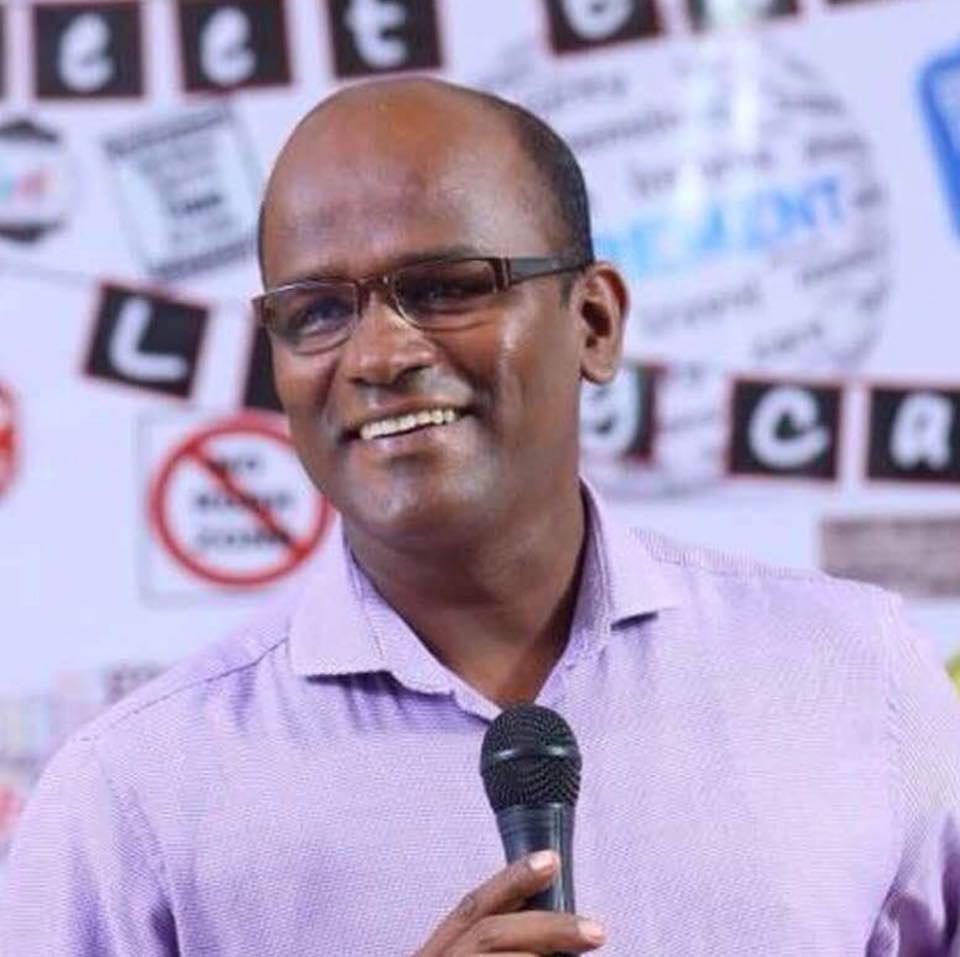
Dr Sathiyaruban, ITAK candidate for Vanni District
TNPF campaign poster.
Party leader Gajendrakumar Ponnampalam and former parliamentarian Selvarajah Kajendran head this official poster which reads - 'Homeland, Nationhood, Self-determination'.
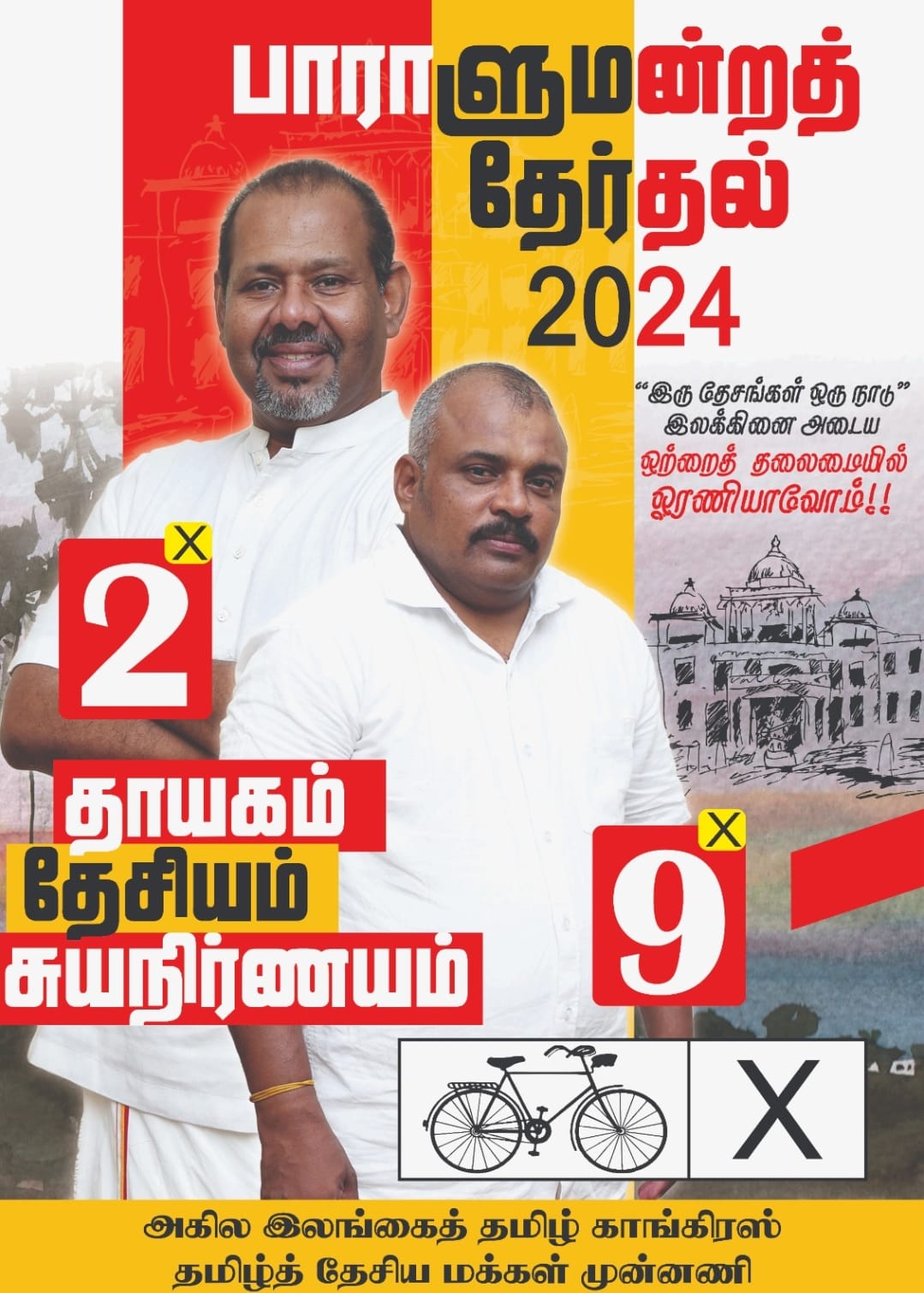
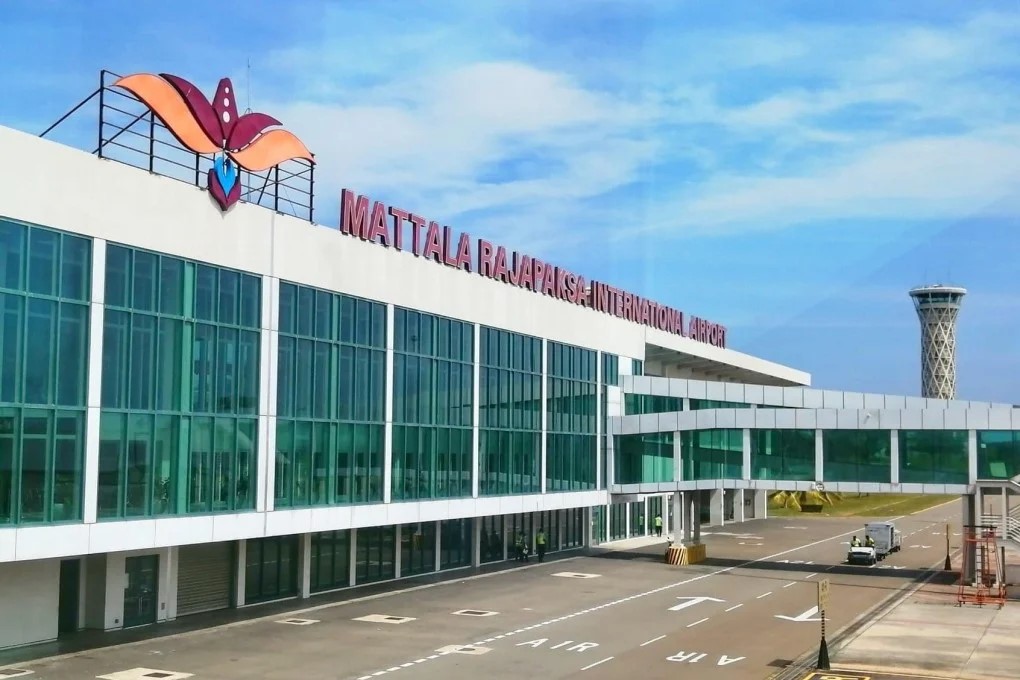


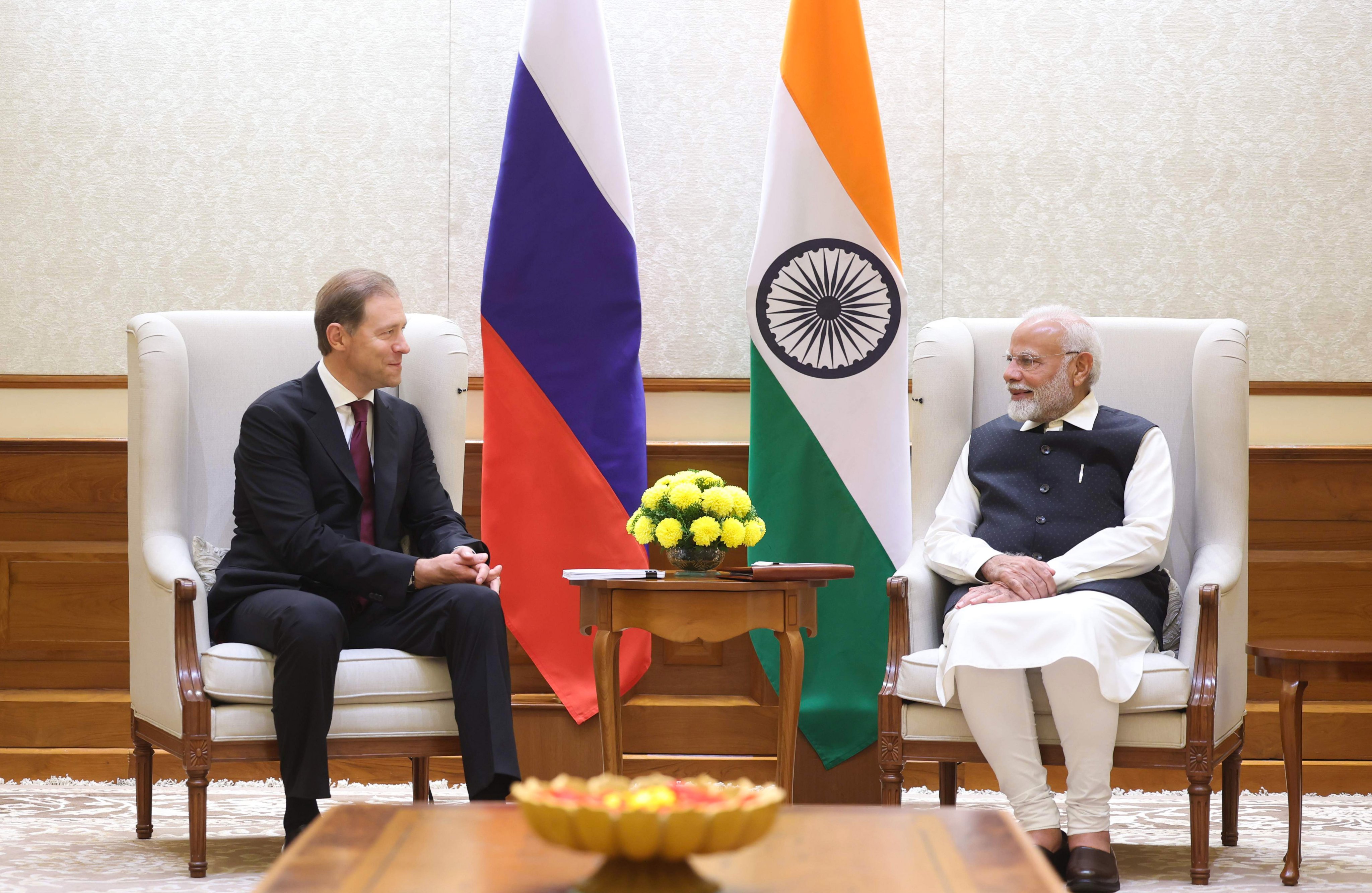

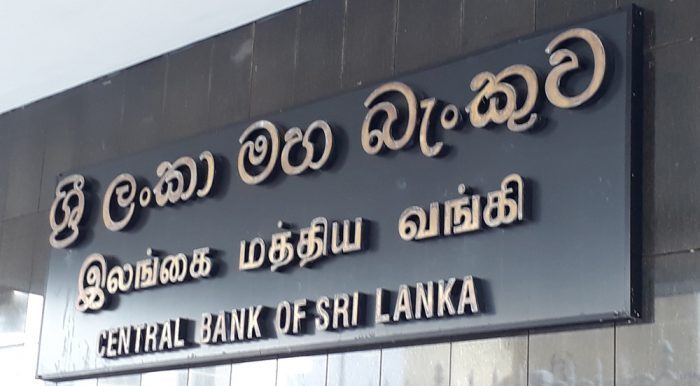

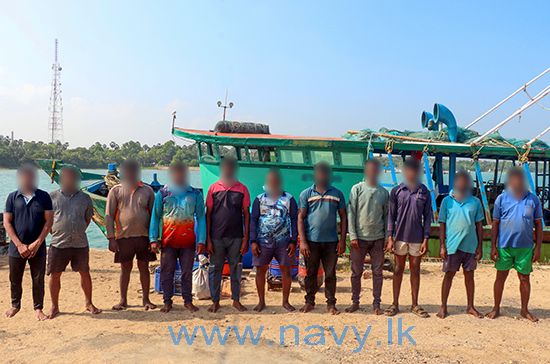
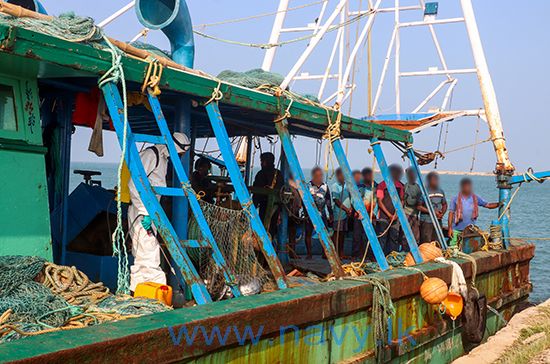
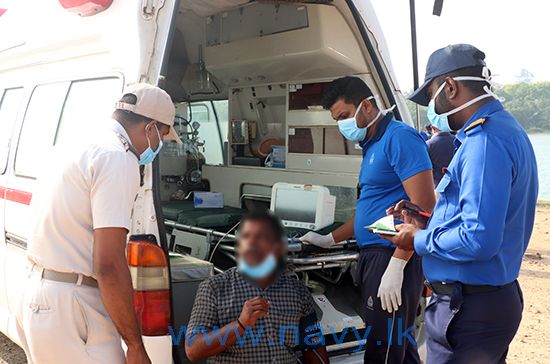

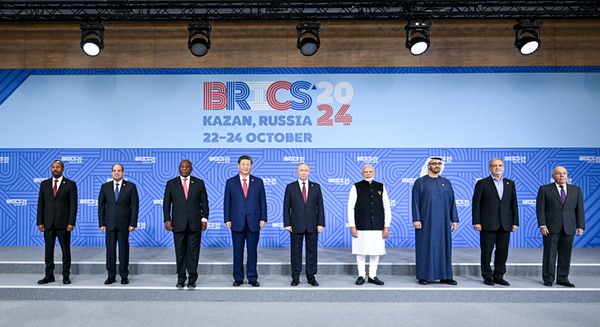

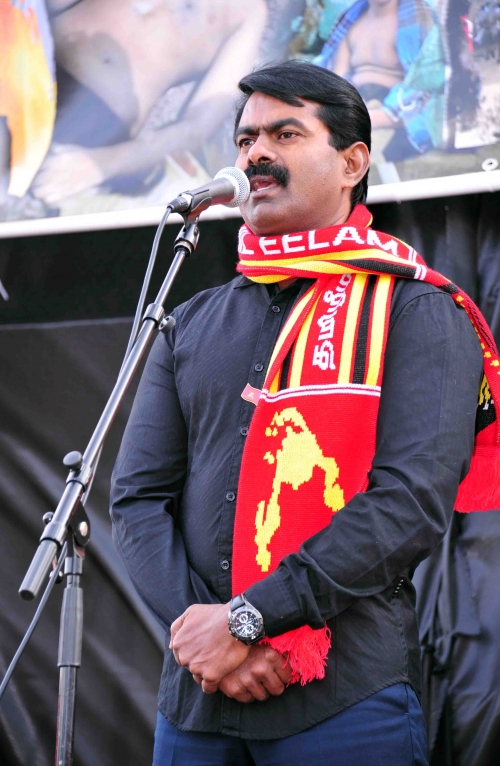


.jpg)

.JPG)
.JPG)
.JPG)
.JPG)
.JPG)

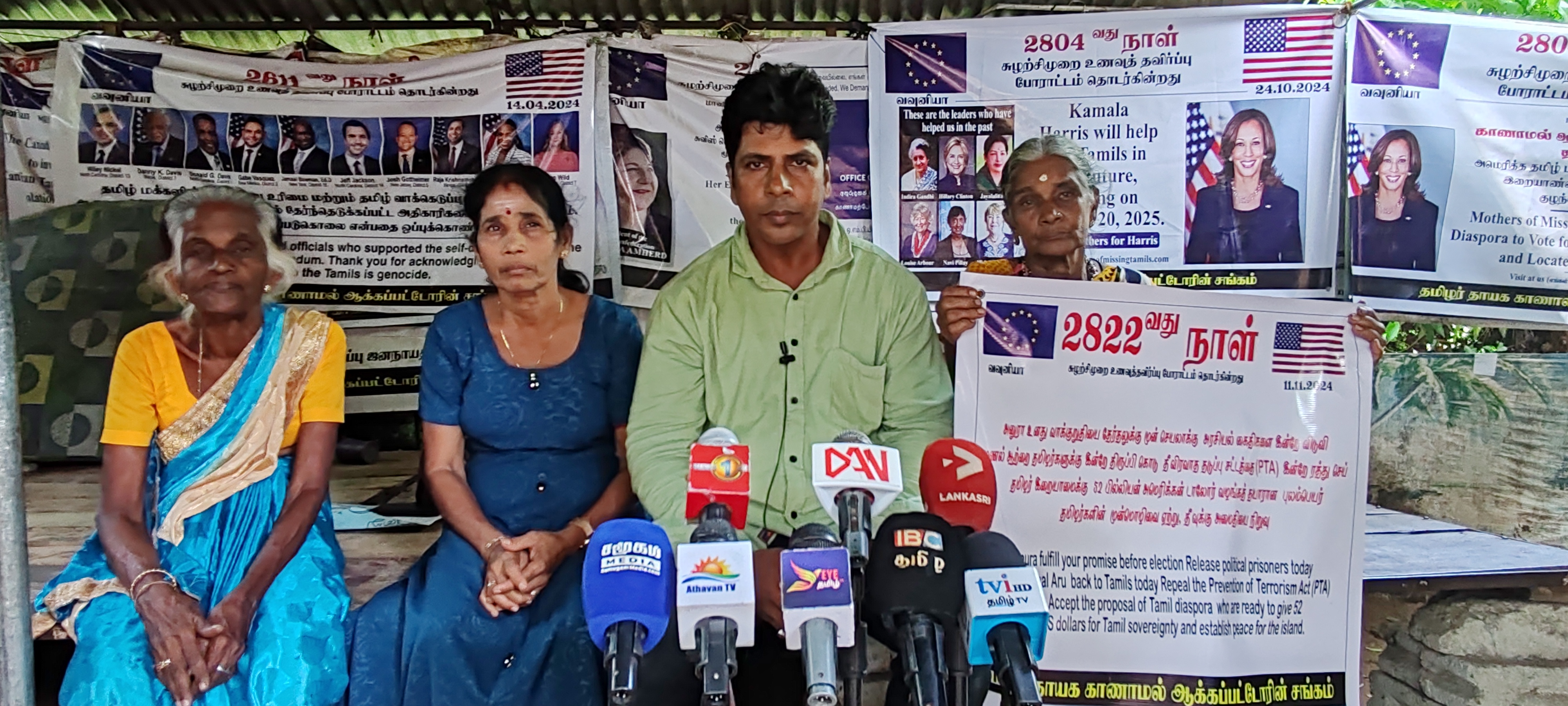

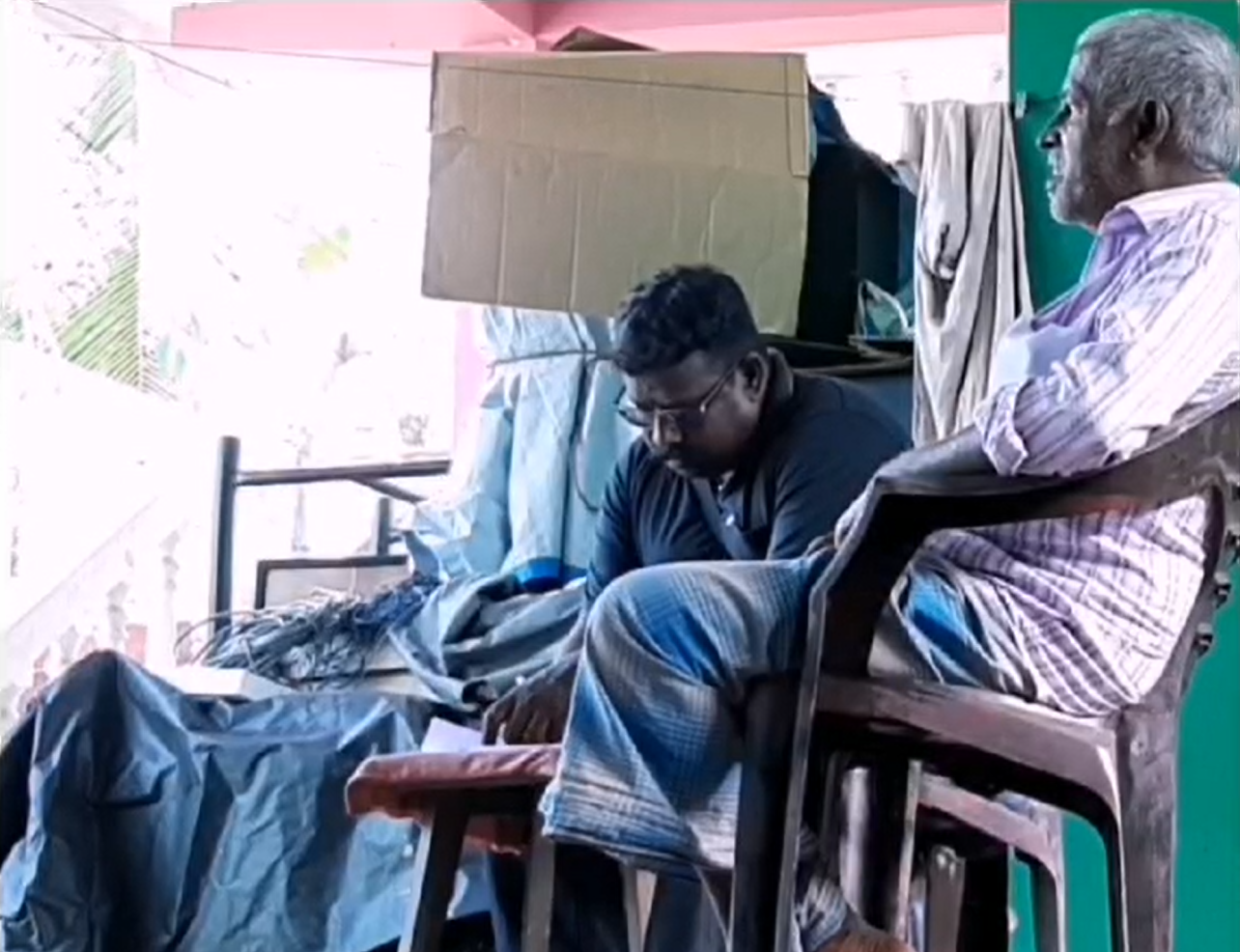

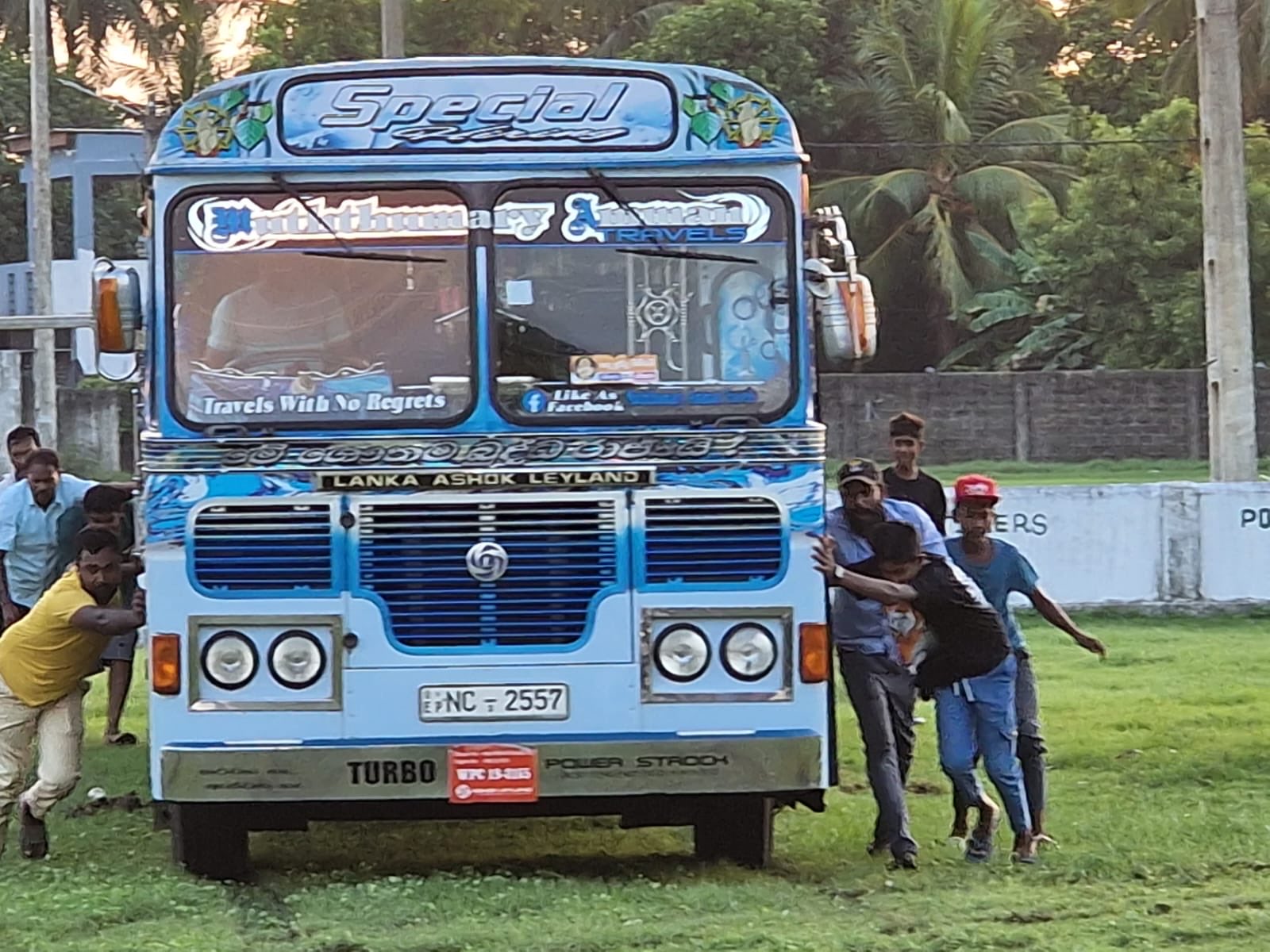
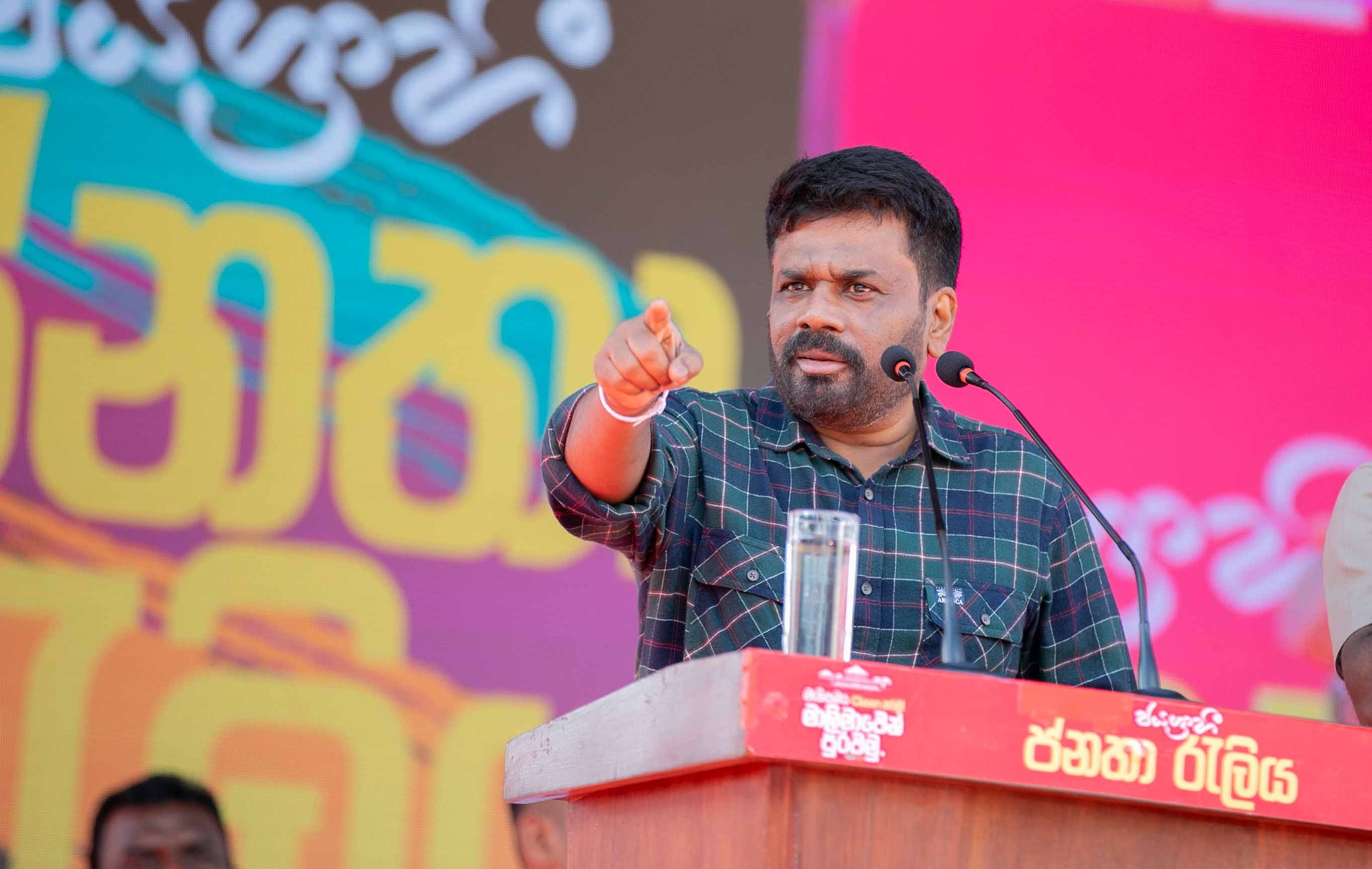


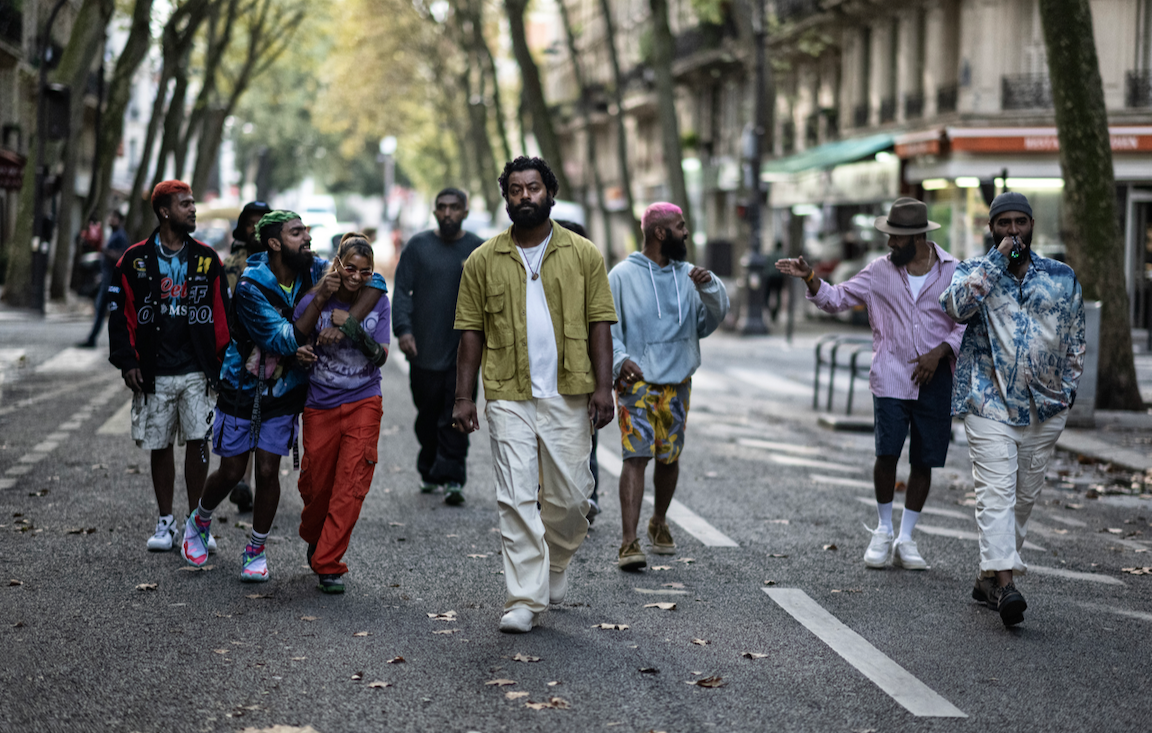

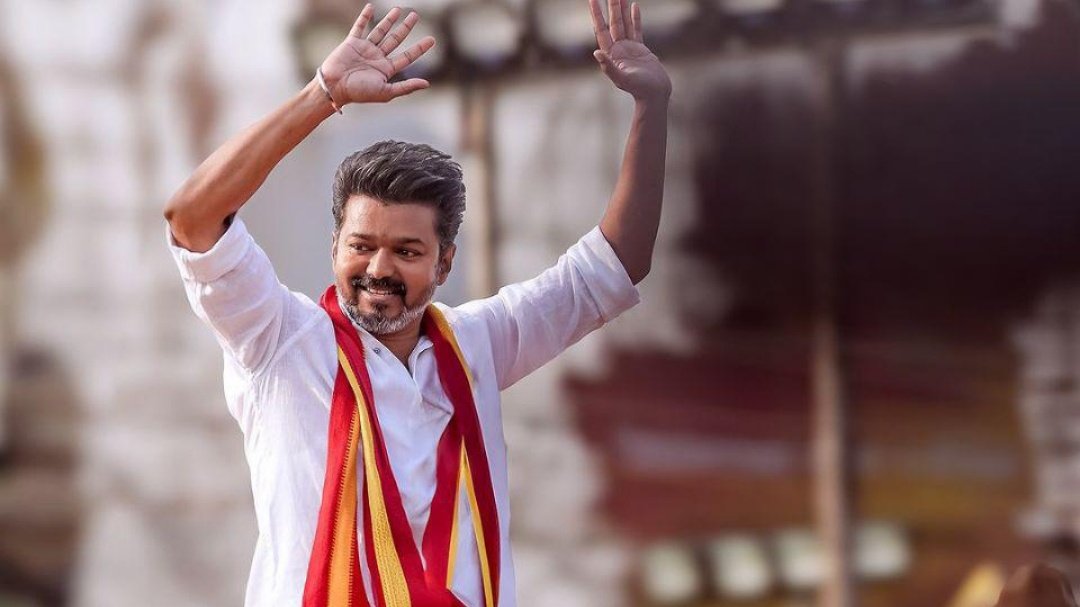

 Democratic Tamil National Allaince candidate and former MP Sivasakthy Anandan speaking to reporters in Vavuniya
Democratic Tamil National Allaince candidate and former MP Sivasakthy Anandan speaking to reporters in Vavuniya




